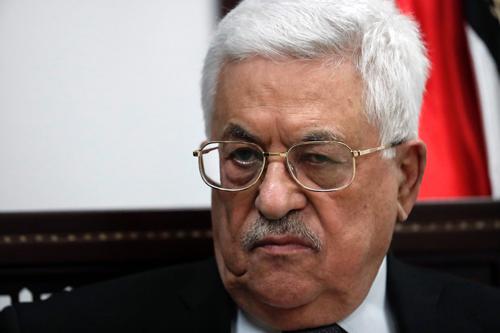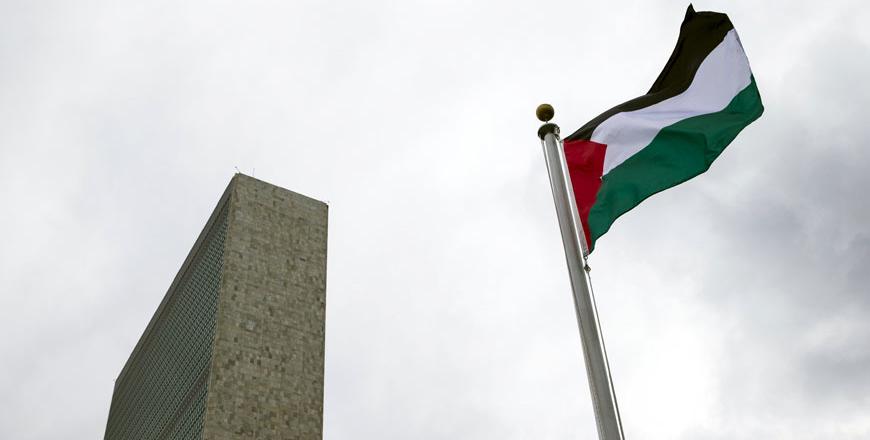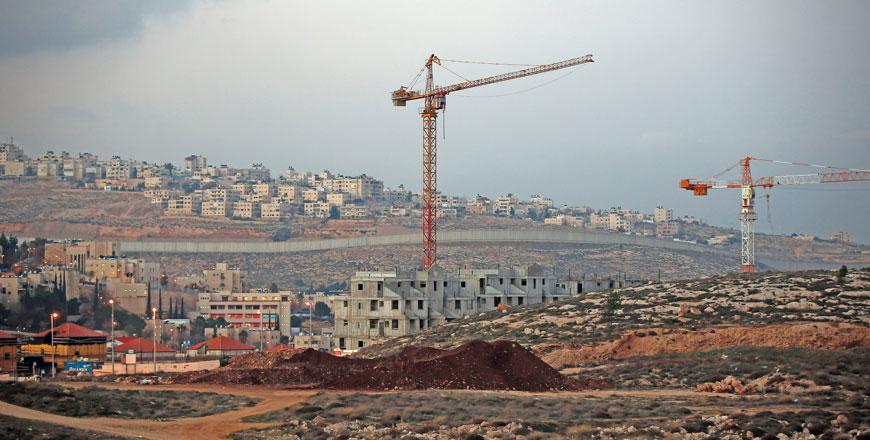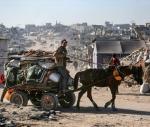You are here
Abbas says ‘urgent’ need for UN resolution on Israeli settlements
By AFP - Apr 12,2016 - Last updated at Apr 12,2016

Palestinian President Mahmoud Abbas listens during an exclusive interview with AFP reporters in his office in the West Bank city of Ramallah on Monday (AFP photo)
RAMALLAH — Palestinian president Mahmoud Abbas has said there is an "urgent" need for a UN resolution on Israeli settlements as he embarks on a multi-country tour that may be among his last chances to renew peace efforts.
Speaking in an interview with AFP, Abbas criticised what he said was insufficent action from US President Barack Obama's administration while also firmly backing a French initiative to hold an international peace conference this summer.
Abbas spoke ahead of a tour beginning on Tuesday that will take him to Turkey, France, Russia, Germany and New York, where the Palestinians are discussing a UN draft resolution condemning Israeli settlements in the occupied West Bank.
The trip comes with the clock ticking for both the 81-year-old and the Obama administration, with speculation the US president could change tack and support a resolution on the peace process before he leaves office in January.
"The Security Council is a very important subject because it has now become urgent due to settlement activities and because Israel has not stopped these activities," Abbas said late on Monday at his office in Ramallah.
Settlement construction in the West Bank "is something that has seriously jeopardised the two-state project".
The United States has repeatedly vetoed resolutions opposed by Israel at the UN Security Council, but the Palestinians are hoping for a change of heart.
"So far, we have not got any reaction from the Americans regarding the Security Council," said Abbas.
He criticised US efforts so far.
"We were expecting from the US administration over the past eight years that it would take positive steps forward to achieve what America believes in, which is the two-state vision," he said.
"Until now, it hasn't happened from the US administration."
Asked whether he was disappointed, he said: "We do not want to use this expression, but we are saying that we were expecting a lot from the US administration and it never happened."
Doubts on compromise
Abbas' two-week tour starts with a summit of the Organisation of Islamic Cooperation in Istanbul and ends in New York.
It may be one of the last chances at renewing peace efforts for the successor to Yasser Arafat who has for years been at the centre of attempts to resolve one of the world's longest-lasting conflicts.
International attention in recent years has however turned elsewhere, with war raging in Syria and Daesh militatns carrying out attacks.
Within Israel and the Palestinian territories, the chances of progress have rarely seemed so far off, with both sides appearing reluctant to make compromises.
A US initiative collapsed in April 2014 and peace efforts have since been at a standstill.
Palestinian fighters and Israel fought yet another war in the Gaza Strip later in 2014, and a wave of Palestinian knife, gun and car-ramming attacks erupted in October.
Though there has been a steady decline in the violence that has killed more than 200 people, there are concerns of another upsurge for the Jewish Passover holiday beginning April 22.
Among the Palestinians themselves, reconciliation efforts have been underway between the Palestinian Authority dominated by Abbas's Fatah and the Islamist movement Hamas, which runs the Gaza Strip, but with little progress reported.
For Abbas and the international community, Israel's continued settlement building in the West Bank is one area of agreement.
Such settlements are considered illegal under international law and are seen as major stumbling blocks to peace efforts since they are built on land the Palestinians see as part of their future state.
Will French plan stick?
Abbas said his trip will promote two main projects, which he sees as complementary: a UN resolution condemning the settlements and the French peace initiative.
Israel has criticised the French plan to organise the international peace conference, but without rejecting it outright.
Prime Minister Benjamin Netanyahu has spoken out against "international dictates" and called for direct negotiations.
The latest declarations from both Netanyahu and Abbas that they are ready to meet at any time have failed to translate into action.
"I have said more than once that I am prepared to meet with Mr Netanyahu and I am ready to receive him," Abbas said in the interview.
"This is not the first time where I say I am ready to meet him whenever he wants."
Concerned that the lack of any initiative would provoke a sharp deterioration and play into the hands of extremists, France re-launched its peace project in January.
Its point man on the project, Pierre Vimont, has sought to lay the groundwork in recent months by meeting a wide range of officials, including the Palestinians and those from Israel, Arab nations, the United States and Russia.
The Palestinians count France among their strongest supporters in the West and Abbas will meet President Francois Hollande on Friday.
Former French foreign minister Laurent Fabius had previously alarmed Israel by saying Paris would recognise a Palestinian state if its initiative failed.
Hollande's administration has since backed away from the claim.
"What is important is to hear from the [French] president if those ideas have turned into a French initiative that the French government will stick by until the end," Abbas said.
Related Articles
UNITED NATIONS — Palestinian President Mahmoud Abbas on Wednesday accused Israel of sabotaging US efforts to broker peace and said that Isra
PARIS — France warned of "serious consequences" on Sunday if Donald Trump recognises Jerusalem as Israel's capital as representatives from 7
RAMALLAH, Palestinian Territories — Palestinian leaders met Monday to plan a response to what they see as US President Donald Trump's attack

















